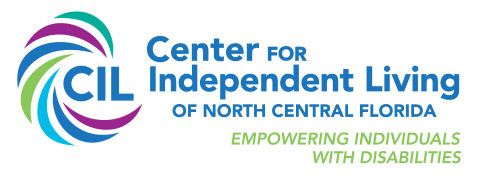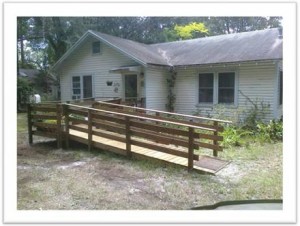By Susan Latham Carr
Staff writer
Published: Sunday, January 15, 2012 at 11:10 p.m.
Fred Strelau uses an amplified telephone that he received free of charge from Florida Telecommunications Relay Inc., a statewide nonprofit agency that distributes special telecommunications equipment to Florida residents who have hearing and speech disabilities.
“We can hear the phone without any problems, even with my hearing aids off,” Strelau said. “It’s difficult to talk to people on the phone when you are hearing-impaired. You are continually straining to listen to what they have to say and trying to avoid asking, ‘What?’ or ‘What did you say?’ ”
Strelau and his wife, Sylvia, got the phone about 10 years ago when they moved to Oak Run in Ocala from Maine. Both have some hearing loss.
“It’s a godsend,” Strelau said. “It’s something — if older people would understand how to get it and how to use it — it would be a godsend to them as well.” The Strelaus’ phone looks like any ordinary phone, except it has additional buttons at the bottom of the unit that individually adjust the tone and the volume. The ringer on the phone is adjustable as well. “I am sure there are many people who don’t know of this particular phone, and it happens to be free,” Strelau said.
FTRI has a number of models of phones and equipment to help those who may be deaf or have hearing and speech difficulties communicate. “FTRI is funded by an 11-cent tax on everyone’s land-line phone bill in the state of Florida, and businesses pay for up to their first 20 lines,” said Myrtle Hoffman, a program director for the Center for Independent Living in 16 counties, including Marion.
The Center for Independent Living distributes the FTRI phones in Ocala and Marion County. The Center is located at 3445 NE 24th St. in Ocala.
“It’s our responsibility to help promote and educate the community about the services,” Hoffman said. Anyone in Florida who is a permanent resident, age 3 and older, is deaf, hard of hearing, blind or has a speech disability can qualify for this free equipment. A variety of models and equipment is available to address particular needs.
For instance, there is a device, called an in-line amplifier, that attaches to the phone. It runs off a 9-volt battery and increases a phone’s volume and tone. And there are land-line phones that also adjust the volume and tone. Three also are loud ringers and visual ringers. Different models contain different decibel ranges. There also are cordless phones. The in-line phones are portable, which comes in handy if there is a power outage.
“You can take it to a hotel, or your family’s house,” Hoffman said.
You can come into the center to fill out an application. No financial or insurance information is required. “We don’t ask about your income,” Hoffman said. And you can make an appointment to review the equipment to find what is most suitable. “Then we send the equipment home with you that day,” Hoffman said. There is even teletalk equipment for those who have had a laryngectomee and need a speech aid. And for those who cannot hold a handset, there are voice-activated phones.
If you do not live near a distribution center or prefer not to come into the center, you can mail an application to FTRI in Tallahassee. They will mail the phone to you via United Parcel Service or Federal Express, and they will pay the shipping costs. The disadvantage, however, is that the equipment is unassembled and you do not receive training.
If your hearing changes or the equipment malfunctions, you simply contact the distribution center to make an appointment. They will examine the equipment and, if necessary, provide a new piece of equipment. “For those who are home-bound, we will go out to their home,” Hoffman said, provided there is a doctor’s note to that effect. According to the 2010 U.S. Census, there were 331,298 people in Marion County. Hoffman said 16 percent of the population, or 53,008 people, have hearing loss.
“We served from July 1, 1991, to Dec. 1, 2011, 14,945 of those individuals,” Hoffman said. Last year, FTRI served more than 2,200 individuals in 16 counties. “It helps keep people connected. It gives them their independence back,” Hoffman said. “We take pride in taking care of our consumers.”
Contact Susan Latham Carr at 867-4156 or susan.carr@starbanner.com
Agency provides phones for the hearing-impaired | Ocala.com.






 Gainesville Fisher House Foundation – Press Release
Gainesville Fisher House Foundation – Press Release
 Supporting America’s military in their time of need, we provide “a home away from home” that enables family members to be close to a loved one at the most stressful time — during hospitalization for an illness, disease or injury. Please visit Gainesville Fisher House Foundation’s website to learn more.
Supporting America’s military in their time of need, we provide “a home away from home” that enables family members to be close to a loved one at the most stressful time — during hospitalization for an illness, disease or injury. Please visit Gainesville Fisher House Foundation’s website to learn more. 
